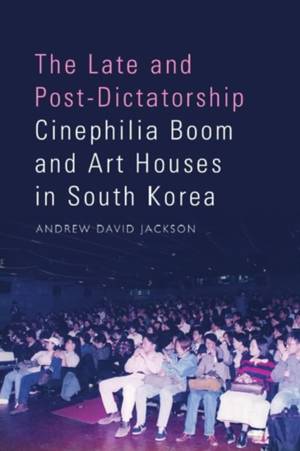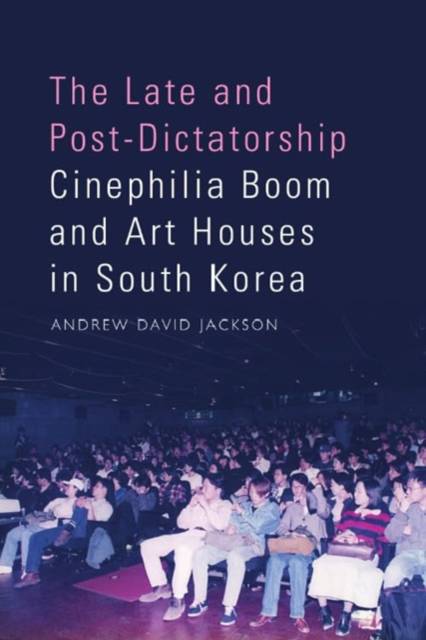
- Retrait gratuit dans votre magasin Club
- 7.000.000 titres dans notre catalogue
- Payer en toute sécurité
- Toujours un magasin près de chez vous
- Retrait gratuit dans votre magasin Club
- 7.000.0000 titres dans notre catalogue
- Payer en toute sécurité
- Toujours un magasin près de chez vous
The Late and Post-Dictatorship Cinephilia Boom and Art Houses in South Korea
Andrew David JacksonDescription
This monograph examines an unexplored area of South Korean cinema history- the 1985-1997 growth of art film exhibition, consumption, and cinephilia. This moment of heightened interest in art film altered how many Koreans conceptualised cinema and helped pave the way for the critical success of South Korean film. This historical study analyses the cultural, political, social, and economic developments of the post-1985 period that increased interest in European art film. It looks at the interactions of art house exhibitors with cinephile audiences, the media and the state-level administrators responsible for governing the industry. The aim of young cinephiles was nothing less than a bottom-up cultural transformation of a society emerging from three decades of dictatorship. The analysis is based on the previously unheard voices of audiences who participated in the cinephilia. This study is both a history of an era in Korean cinema and an argument about the impact of this period of cultural renewal on the industry.
Spécifications
Parties prenantes
- Auteur(s) :
- Editeur:
Contenu
- Nombre de pages :
- 296
- Langue:
- Anglais
Caractéristiques
- EAN:
- 9781399514200
- Date de parution :
- 06-12-23
- Format:
- Livre relié
- Format numérique:
- Genaaid
- Dimensions :
- 156 mm x 234 mm
- Poids :
- 580 g

Les avis
Nous publions uniquement les avis qui respectent les conditions requises. Consultez nos conditions pour les avis.






